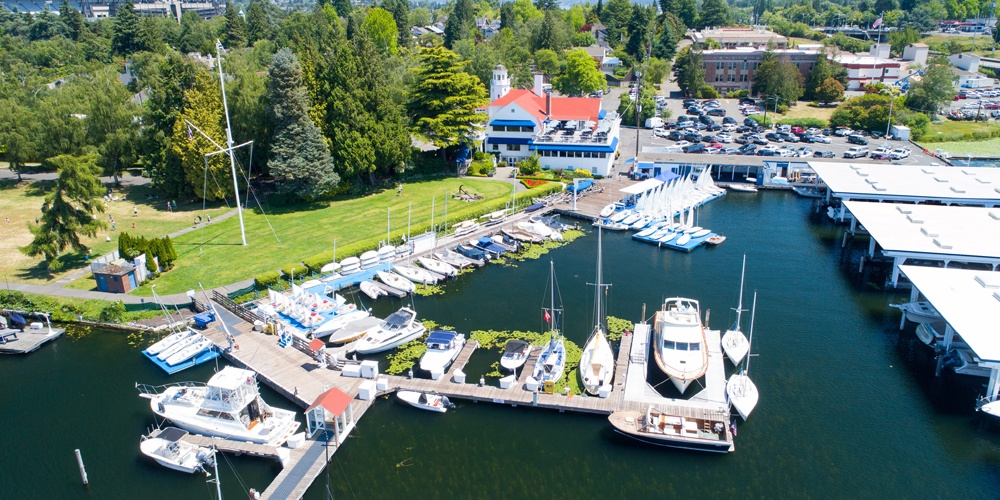Big money and amateur sports are alive and well in the Puget Sound basin. Seattle has for years been a party to this frenzied activity and business. Legal betting has recently entered the fray. Sports fans (derived from the word “fanatics”) avidly follow the lives of male, female, and trans-gender heroes. Music, costumes, flags, and souvenirs related to sports are available. No individual is too young or too old to navigate our massive houses of sport, while a flick of the switch captures contests on electronic devices galore.
What are the origins of these pastimes?
Native traditions likely laid a foundation for local sports. For example, early forms of so-called Indian field hockey were popular and known throughout North America. Horse-racing became central to potlatches and other celebrations. Gambling became a kind of sport and survives today in Native casinos.
Early Euro-American settlers at first did not have time to frolic on make-shift playfields, but hunting and fishing competitions grew apace. Children were encouraged to engage in running and jumping games.
In the 1850s, Washington State Governor Isaac I. Stevens cooperated with the Cayuse (Walla Walla area) in organizing horse races. In the 1870s pioneers described Native horse races on Seattle’s Commercial Street, today’s First Avenue South. Fourth of July was a grand excuse to hold footraces and regattas. The Alkis, Seattle’s first organized baseball team, played their maiden contest in 1876, followed by a road tour during which they won games against Olympia and Victoria, B.C.
Boxing was illegal in most 1880s communities, but fighters John L. Sullivan, Jim Jeffries, and other ring champions came to the Pacific Northwest as actors in travelling theatrical companies. To heighten the mood, and perhaps place a small wager, a local tough guy would be matched against a visiting pugilist in some out-of-the-way hall that was known to every male citizen (no ladies allowed).
From the 1870s onward Seattleites and other nearby citizens became “sports fans.” The Seattle Jockey Club was formed in 1870; The Seattle Yacht Club arrived in 1879; followed by The Seattle Golf Club. Although, these organizations were mostly “rich men” activities, newspaper reports and growing spectator interests moved these activities into every neighborhood. For example, horse racing has remained an everyday, everyone sport. The Duwamish Flats, near today’s Boeing Field , supported The Meadows race track, including Seattle’s first large grandstand.
In 1894, The Mazamas, our region’s first organized mountaineering group, was formed in Portland, Oregon. In 1906, another outdoor group, The Mountaineers, took up challenges presented by our region’s scenic valleys, hills, and rivers.
Biking, long an American and European pastime, gained a local foothold in 1879 – the year Seattle’s first bicycle appeared on its dirt trails. Soon after, the Queen City Bicycle Club was formed, followed by the establishment of 35 miles of city bike trails (most of them still in existence, but occasionally co-habiting local roadways).
Physical fitness was a central activity at local universities by the lates 1800s. Rowing, for example, was at one time more popular than football at the University of Washington. In 1907, 20,000 people watched the first eight-oared race along the shores of Lake Washington. In 1936 coach Hiram Conibear’s Husky oarsmen took the Gold Medal at the Berlin Olympic Games (wonderfully described in Daniel James Brown’s The Boys in the Boat).
Washington State’s Olympians and ParaOlympians now number in the hundreds. The excitement of sports permeates all levels of education, dead-end or public park pick-up competitions, and through the high and low seasons of teams with Seahawks, Mariners, Storm, Kraken, Huskies, and many more.
Remember, the entire adventure may have begun when Isaac I. Stevens, our first governor, encouraged a local Indian horse race.
Discover more from Post Alley
Subscribe to get the latest posts sent to your email.

Seattle is a great supporter of sports, the locale being ideal for outdoor activities. The difference between Seattle and cities like LA, NYC, Chicago or Miami is that if you give a man $2000 to spend on himself he’d probably go buy a suit. In Seattle he’d probably buy a kayak. That’s the culture here.
Al Ulbrickson, not Hiram Conibear, coached the UW’s 1936 Olympic Gold Medal-winning crew, I believe. — Gregg Herington, Vancouver WA.